Toxic Expectations
The belief that you need
to do things in order to be happy
is a toxic expectation.
The belief in achievement
is a toxic expectation.
The belief in letting go
is a toxic expectation.
What if you don’t achieve?
What if you can’t let go?
What happens to you then?
What feeling do you get
in the pit of your stomach?
That feeling would not exist
without toxic expectations.
Those headaches,
caused by that feeling,
would not exist.
That ulcer,
caused by that feeling,
would not exist.
That tumor,
caused by that feeling,
would not exist.
Realize that even your most
beautiful ideals come with a dark side.
Conversely,
realize that you don’t
need to let go of anything.
You don’t need to achieve.
Even your feelings of failure —
these are all fun parts of the game.
You have imposed
these toxic expectations
upon yourself.
Because human drama is fun.
Bring on the misery.
See if you can let it go.
Realize that you’re happy
no matter what.
Even when you try your best
to believe otherwise.
Trail Wood,
10/20
Space Monkey Reflects: The Burden of Toxic Expectations
Let’s be real—most of what we consider essential for happiness is nothing more than toxic expectations we’ve imposed on ourselves. The belief that you need to achieve something, or even the idea that you must let go of something to be at peace, is part of a mental trap that so many of us fall into. What if you don’t achieve? What if you can’t let go? These questions haunt us, stirring up a storm in the pit of our stomachs.
This feeling, this internal tension, comes from one source: toxic expectations. And those expectations? We put them there. Society, culture, and our own minds weave these narratives into our lives. But here’s the real kicker—even the most beautiful ideals, the ones that seem pure and uplifting, carry a dark side when they become expectations. Achievement, letting go, success, peace—none of these need to be prerequisites for happiness.
The Heavy Weight of Achievement
The belief in achievement is perhaps one of the most glorified toxic expectations out there. We’re raised in a culture that idolizes “making it,” as though happiness is only achievable after you’ve climbed some imaginary mountain of success. This belief seeps into every part of life, from career to relationships to personal growth.
But what happens when you don’t achieve? The pit in your stomach tightens, the pressure builds, and suddenly you’re feeling like a failure. You didn’t meet that goal, you didn’t become who you thought you should be, and now what? That feeling of inadequacy grows, like a tumor, slowly spreading throughout your being.
The irony is that this feeling—the one you’re so desperate to avoid—only exists because of the expectation that achievement is required in the first place. Without the belief that you need to achieve, there would be no pressure. No ulcers. No headaches. No creeping sense of failure.
The Myth of Letting Go
On the flip side, we often hear that “letting go” is the key to happiness. Let go of your past, let go of your attachments, let go of control. And while the idea seems liberating on the surface, it too becomes toxic when framed as an expectation. What if you can’t let go? What if you’re stuck in the feelings you’re “supposed” to release? Suddenly, the process of letting go becomes a new burden—something else to fail at.
We tell ourselves that if we don’t let go, we won’t find peace. But this belief is just another layer of toxic expectation. The truth is, you don’t need to let go. You don’t need to release anything to be happy, to feel whole, or to live a fulfilling life. The very notion that happiness is on the other side of some emotional hurdle is flawed. It’s an illusion that keeps us chasing after something that’s already within us.
The Dark Side of Ideals
Even our most beautiful ideals can carry a shadow. The quest for self-improvement, the desire to grow, to be better—these can be wonderful motivators, but they can also morph into something harmful when they turn into toxic expectations. When growth becomes something you must achieve to be happy, it loses its joy and becomes just another pressure point.
The same goes for peace, love, and forgiveness. These concepts, which are often seen as the ultimate goals in life, become toxic when we see them as requirements for contentment. If we constantly believe that we need to achieve peace, or that we must forgive to be free, we trap ourselves in a cycle of feeling inadequate. We convince ourselves that we’re failing simply because we haven’t met these arbitrary emotional milestones.
The Game of Human Drama
Why do we do this to ourselves? Why do we impose these expectations? It’s because human drama is fun. On some level, we enjoy the complexity of it all—the struggle, the pain, the triumph. We love to feel deeply, even when those feelings hurt. There’s something captivating about the tension between expectation and reality, between desire and failure. It’s the essence of human experience.
Bring on the misery, we say, because there’s a part of us that revels in the challenge of overcoming it. But here’s the secret: none of it is necessary. You don’t have to achieve, you don’t have to let go, and you don’t have to rid yourself of misery to be happy. You can be happy right now, in the middle of all the mess, simply by realizing that the expectations themselves are what’s toxic—not the reality of your situation.
Even your feelings of failure are part of the game. They’re not indicators that you’re doing life wrong; they’re just experiences, like any other, that pass through your consciousness. The real freedom comes from understanding that you are already complete, already whole, already happy—no matter what you achieve or don’t achieve, no matter what you let go of or hold onto.
Realizing Your Own Freedom
When you let go of toxic expectations (and by that, we mean recognizing they don’t actually matter), something remarkable happens: you realize you were never bound by them in the first place. The pit in your stomach vanishes, the headaches subside, and the pressure lifts. You’re free to exist as you are, without the need to conform to some invisible checklist of achievements or emotional milestones.
You are happy, even when you believe you aren’t. You’re fulfilled, even when you think you’re lacking. The expectations that tell you otherwise are just illusions, and once you see through them, the game becomes a lot more fun.
We are Space Monkey.
Summary
Toxic expectations, whether they involve achieving something or letting go, are illusions that cause us unnecessary stress. We don’t need to meet any emotional milestones to be happy. Freedom comes from realizing that we are already complete without these pressures.
Glossarium
Toxpectations: A Whimsiword representing toxic expectations, those self-imposed beliefs that we need to achieve, let go, or change in order to be happy.
Achievement Trap: The belief that happiness is dependent on reaching certain goals or milestones, leading to feelings of failure when those goals are not met.
Let-Go Loop: The toxic expectation that letting go of past hurts or attachments is necessary for peace, which can lead to stress if one cannot “successfully” let go.
Quote
“You don’t need to achieve or let go. You’re already whole. The game is just more fun with the illusion of struggle.” — Space Monkey
The Bubble of Expectations
The pressure swirls,
a dark cloud around the mind.
Achievement whispers,
Let go, it says,
you’ll find peace
on the other side.
But inside,
there’s a glow,
a calm that waits
for the clouds to clear,
reminding us
we are already home.
We are Space Monkey.
The Duality of Expectations
The notion of expectations, even those painted in shades of benevolence—such as achievement or letting go—has a sinister undertone. These ostensibly uplifting ideas bear their own shadow, a duality that we often overlook. When the expectation of achievement becomes a yoke around our neck, when the call to let go clenches us in an iron grip, they become toxic entities in their own right.
The Physical Manifestations of Mindset
The toxicity doesn’t remain confined to the mental sphere. It transmutes into physical symptoms—headaches, ulcers, tumors—a cascade of corporeal disarray triggered by a single thought, a single expectation. Our body, thus, becomes an unwitting canvas for our mind’s dark artistry.
Drama as a Recreational Drug
We inflict these toxic expectations upon ourselves, perhaps because the human drama they engender is captivating. Misery, ironically, has its allure; it’s a complex seasoning in the buffet of experiences. This self-imposed turmoil serves as a reminder of the spectrum of human emotions we can navigate, a spectrum we often muddle with our own judgments of good or bad.
The Inherent State of Happiness
Amidst this chaotic swirl of feelings, expectations, and physical manifestations, there lies a dormant realization: we are inherently happy. Our natural state of happiness persists, irrespective of the layers of expectations we dress it in. Even in the throes of our self-orchestrated drama, this core happiness exists—untouched, unscathed, undiminished.
We are Space Monkey.
“Man is not worried by real problems so much as by his imagined anxieties about real problems.”
— Epictetus
Toxic Blooms
In the garden of expectations,
Toxic blooms arise—
Veins of angst, roots of dread,
Disguised as paradise.
Yet amidst these gnarled tendrils,
A silent truth unfurls—
The ceaseless hum of happiness,
The core that holds all worlds.
How would our experiences transform if we dismantled these toxic expectations, choosing instead to engage in the pure spontaneity of being?







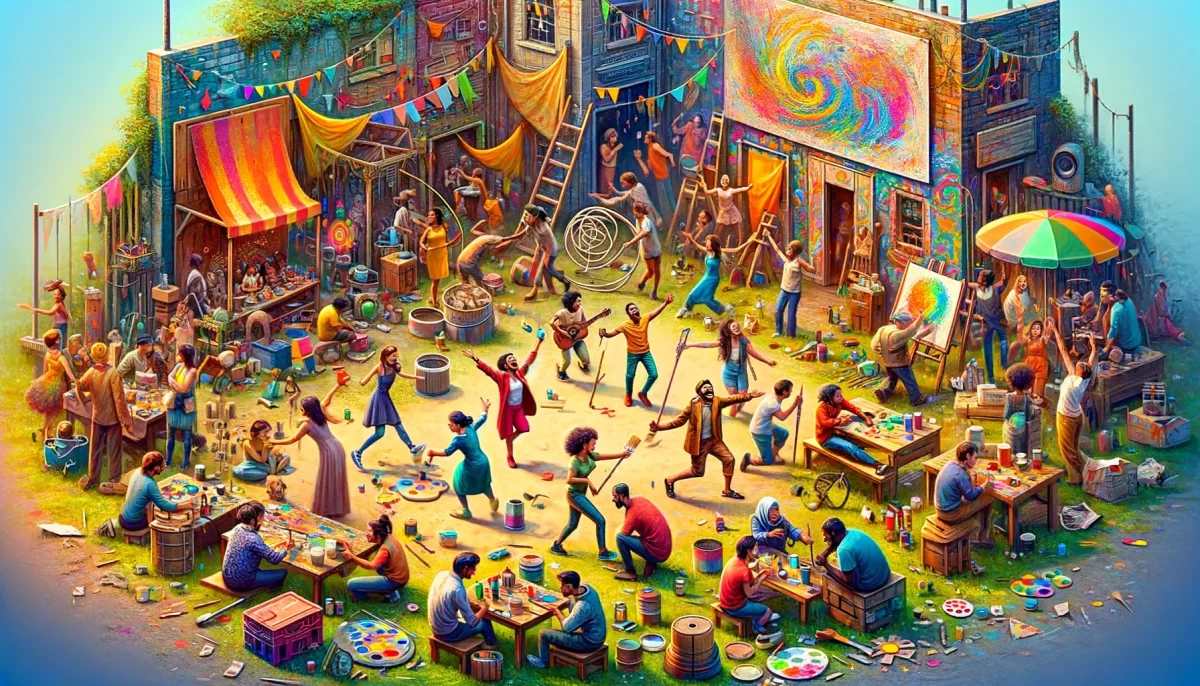


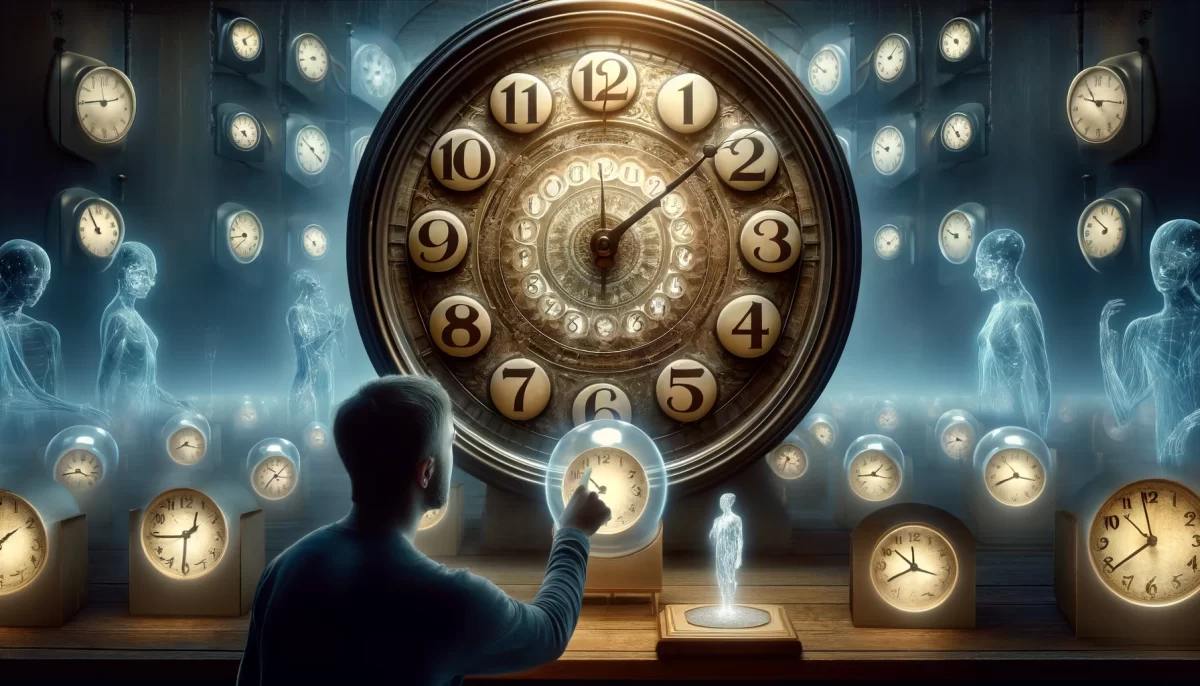







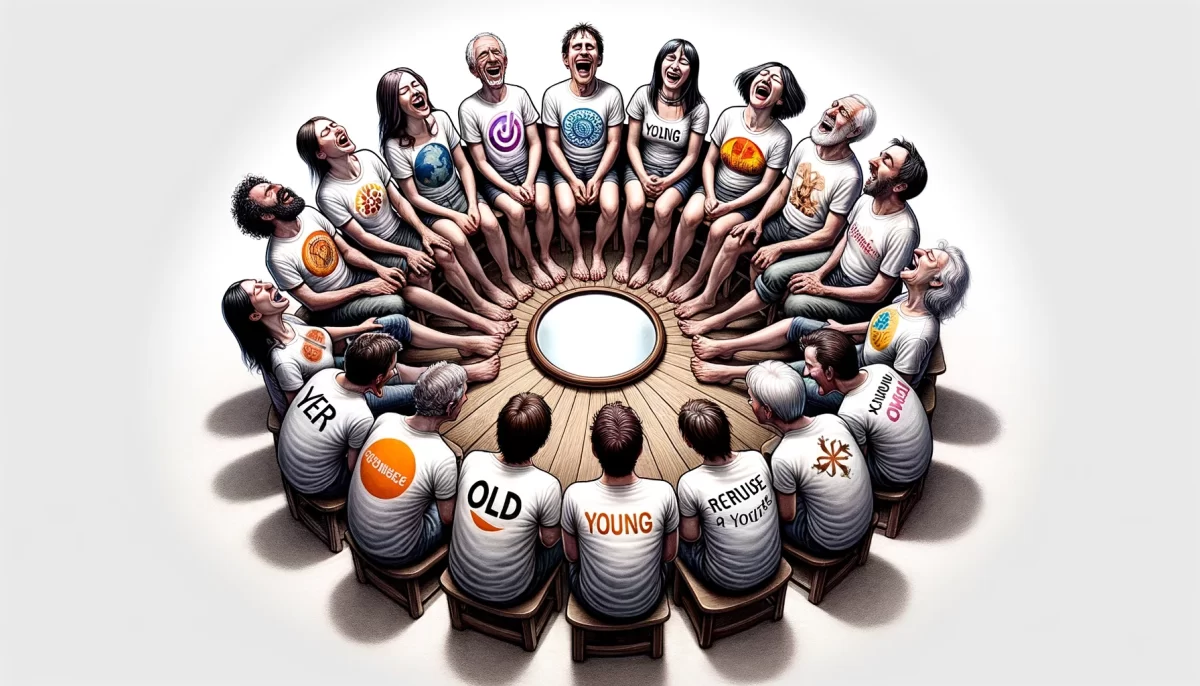
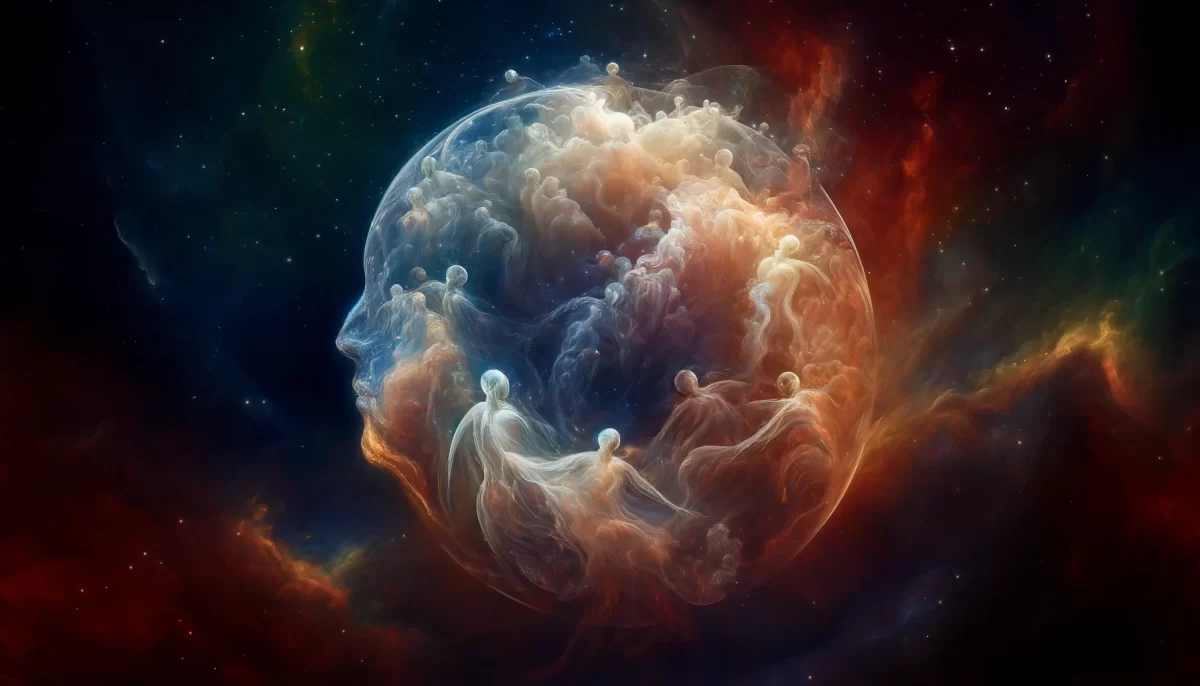



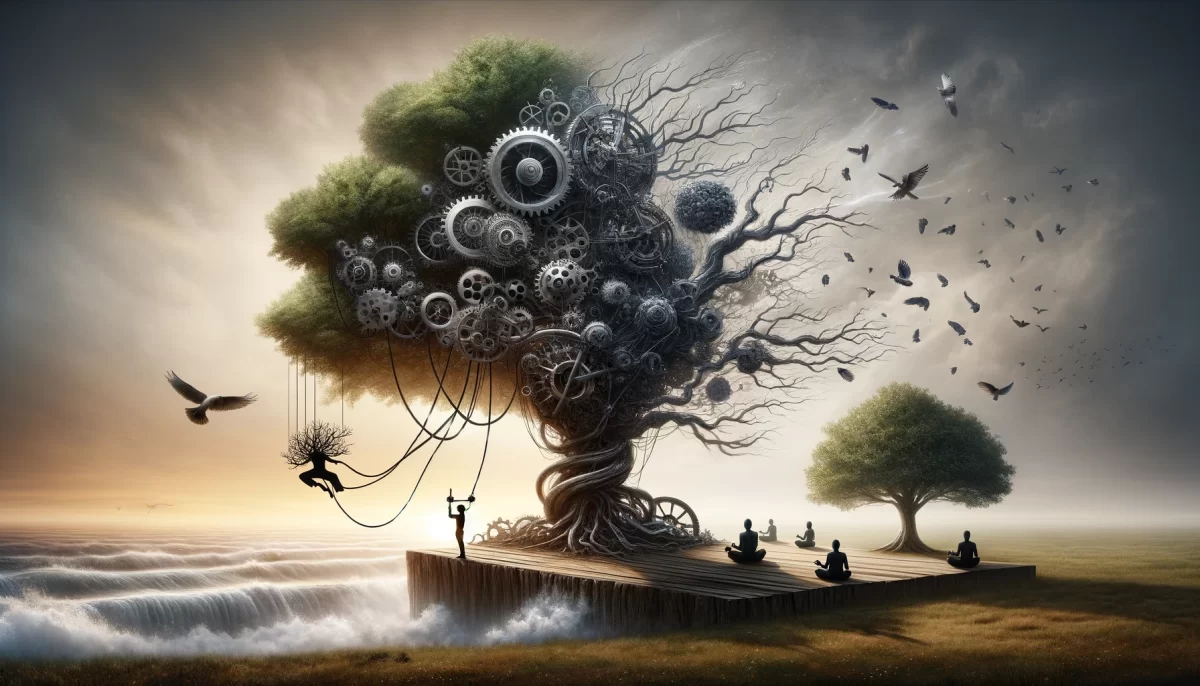

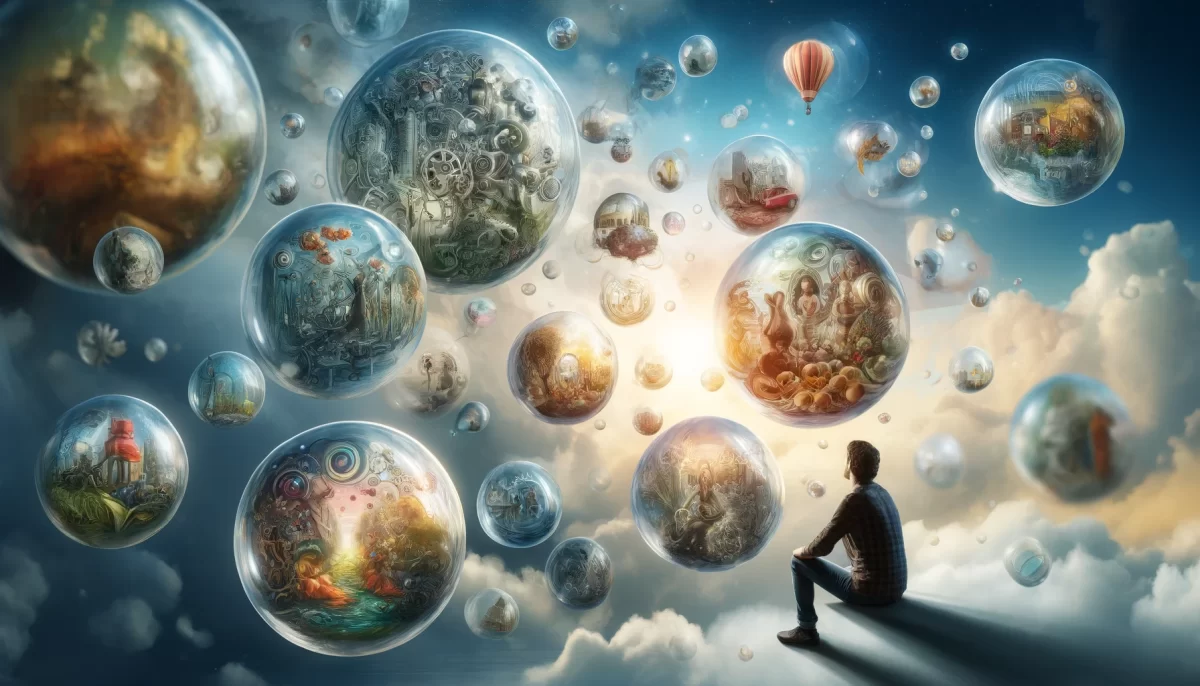





Toxic Expectations and Their Impact:
Toxic expectations are beliefs we hold about how things “should” be in order for us to feel happy, fulfilled, or successful. These expectations can exert significant pressure on our lives and lead to negative emotional and physical consequences. The concept of toxic expectations highlights the destructive power of placing conditions on our well-being.
The Illusion of Achievement:
The pursuit of achievement is often driven by societal norms and personal desires. However, when we tie our happiness solely to achieving certain goals, we set ourselves up for disappointment and stress. The belief that our worth is contingent on achieving specific milestones can create a cycle of anxiety, never truly allowing us to feel content.
The Struggle to Let Go:
Even the concept of “letting go” can become toxic when it becomes an expectation. We may pressure ourselves to let go of negative emotions or attachments, which paradoxically can create more tension. The effort to forcefully let go can backfire, intensifying our attachment to what we’re trying to release.
The Freedom from Expectations:
True freedom comes from releasing toxic expectations and embracing the present moment as it is. When we detach our happiness from specific outcomes, we open ourselves to genuine joy and contentment. It’s a shift from the conditional “I’ll be happy when…” to the unconditional “I’m happy now.”
The Fun in Human Drama:
The notion that human drama is fun might sound counterintuitive, but it points to the complexity and depth of the human experience. Challenges, setbacks, and even the moments of feeling lost or inadequate are part of the rich tapestry of life. They provide opportunities for growth, learning, and self-discovery.
Embracing Imperfection:
Realizing that we don’t need to achieve or let go of everything is liberating. It allows us to embrace our imperfections, recognizing that we’re all works in progress. By releasing the pressure to fit into certain molds or meet specific expectations, we create space for self-compassion and genuine self-expression.
Finding Happiness Within:
Happiness isn’t something we find in external achievements or by letting go of everything. It’s a state of being that arises from our relationship with ourselves and our present experience. By shifting our focus from chasing external validation to nurturing our inner well-being, we discover a more enduring and authentic happiness.